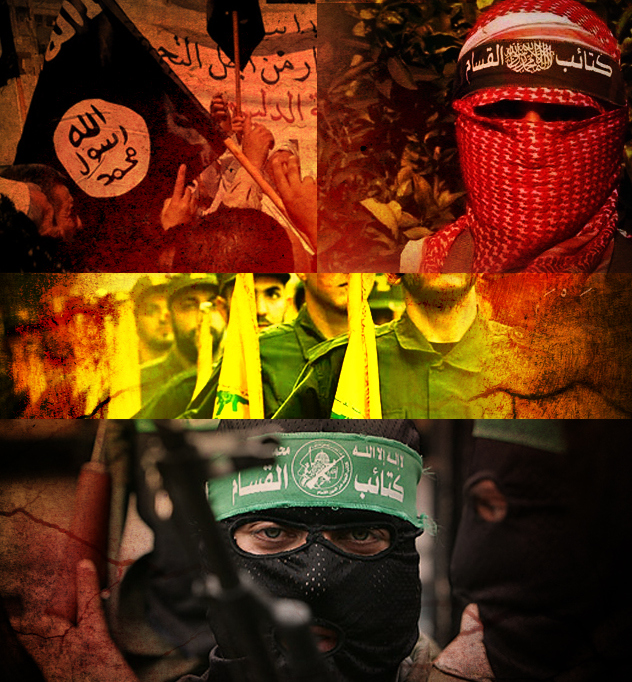Humanitarian Jihad: Dancing to the beat of the Islamic Street
 [This is an excerpt from the last chapter of The Black Flag of Jihad stalks la République, scheduled for release on December 10th]
[This is an excerpt from the last chapter of The Black Flag of Jihad stalks la République, scheduled for release on December 10th]
After the Arab Spring the September 2015 refugee crisis. Once again our media and allied opinion-makers dance to the beat of the Islamic street. Moved to ecstasy by compact masses of Muslim men leavened with a sprinkling of women and children trampling the ground we stand on, they incite the citizens of Europe and beyond to abject surrender in humanitarian guise.
The photo of a child victim triggered a massive onslaught on the West. The doll-like body of Aylan Shenu (a.k.a. Al Kurdi), face down at the water’s edge looking like a peaceful toddler sleeping the dreams of innocence, has produced the al Dura effect: a white flash of emotion, hasty judgment, swift punishment of the guilty, total impunity for the aggrieved party.
Why in fact was this child washed up on the beach? His parents embarked with their two boys on troubled seas in an overloaded inflated boat that would supposedly carry them from the Turkish beach of Bodum to the Greek island of Kos and from there to A New Life. The father survived, his wife and two sons drowned.
Apparently none of them had life jackets, though I have no way of judging the veracity of various contradictory accounts of the incident. The father, Abdullah, says the boat capsized because the passengers stood up. He was holding on to his wife and children, lost them one by one. Five year-old Galip died, the father had to let go of him; he saw Aylan’s eyes fill with blood, and bid him farewell; his wife was afloat, puffed up like a balloon, unrecognizable. Zeinab Abbas, an Iraqi who lost two of her three children in the shipwreck, claims that Abdullah is a people smuggler who was piloting the boat; he went too fast, causing the accident. The boat was overloaded, there weren’t enough life jackets to go around. Survivors of similar crossings testify that the smugglers are never aboard; they choose one of the passengers to act as captain. What, then, justifies the payment of thousands of euros for the perilous crossing? Why wouldn’t people buy their own boats and life jackets, and increase their chances of survival by traveling in small groups? Obviously they don’t, as can be seen by the constant stream of overloaded dinghies arriving on Greek shores. Often it is the children who don’t have life jackets.
But practical questions of this nature were strictly verboten as the lethal narrative of the refugee crisis triggered by the iconic figure of Aylan unfolded. No pas d’amalgame for the dead child. When a Muslim commits an attack, the chorus chants pas d’amalgame, don’t blame Muslims collectively and besides, it has nothing to do with Islam. When I first saw the photo I thought it was taken on a Greek or Italian beach. The addition of the word “touristic” gave the Turkish beach of Bodum extraterritoriality, like a foreign embassy. The poor child was crossing the waters in an inflatable boat instead of taking a plane like the tourists. What about the 38 tourists gunned down on a beach in Sousse? They weren’t icons of Tunisian indifference; Tunisia was the victim of “a small minority of extremists who pervert Islam.” The photo of Aylan Shenu produced the al Dura effect: Guilty of his death, we are fair game for anything anyone wants to do to punish us. The only acceptable reaction was to blame Europe for criminal negligence. The campaign was kicked off with hashtags, slogans in the sand, heart-rending reiteration, and self-satisfied indignation. All the oceans of the world could not contain the tears that Europe should shed. No gesture of atonement-hospitality was deep and broad enough to save us from eternal damnation. The punishment was rapid and severe. Europe was deprived of its sovereignty, its borders, and the right to enjoy its just deserts.
Even as the Finnish prime minister offered his summer home to two families (how would they be chosen out of the hundreds of thousands marching as to war?) and a French woman created a free-of-charge “Airbnb” to lodge all comers, Europe was beating its breast, covering its head with ashes, and accusing itself of heartless indifference to the plight of the victims. First identified as migrants to avoid the shameful accuracy of “illegal immigrants,” the masses arriving by land, sea, and air were anointed as refugees and the default emotion was uncritical compassion. No, it was more like infatuation, adoration…swooning submission.
At least that is how mass media framed the story in Phase One. Government officials, with notable exceptions, were tearing their hearts out of their breast pockets to demonstrate compassion. It will take time to determine the degree of sincerity on each level of their discourse and action—follow-the-media emotion, desperate EU attempts to impose quotas for resettlement of asylum seekers, promises that economic migrants ineligible for asylum would be deported, and the frantic restoration of border controls within the Schengen free-circulation region and on its outer frontiers. On intellectual territory, the slightest deviation from the party line by analysts, specialists, and philosophers provoked a virtual lynch mob.
Day after day the refugee crisis dominated the news stream. Zapping from one channel to another, one online media to the next, we were faced with the irresistible flow of refugees and the ongoing lethal narrative of their inalienable right to come, to see, and to conquer the good life. Excited journalists, some of whom had starred in the Arab Spring show, camped in the Munich train station, ran through Serbian fields, pushed up against Hungary’s security barrier, crammed into trains and buses, shouted with the mob, cuddled wide-eyed babies, filling the screen with outpourings that drowned rational thought in the capsized dinghy of an orchestrated craze.
And yet there has been no popular refugee-welcome enthusiasm in France. Hopes of rousing another Je Suis Charlie movement fell flat. An estimated 8,000 people gathered one evening at Place de la République, there was at least one “Je Suis Syrien” sign, a solidarity concert attracted a few hundred in the City Hall square, nothing to compare with Germany’s open arms. The pernicious effect of the operation is to be found elsewhere, in a sort of quiet resignation to the violation of the basic attributes of sovereignty. The current unprecedented stampede is simplistically equated with previous waves of immigration, deliberately or unwittingly ignoring the difference in scope, context, attitude, and circumstances. One commentator compared it to the “immigration” of pieds noirs from the Maghreb. Never mind that the pieds noirs were French, forced to flee a newly independent Algeria, and the Maghrebi Jews that fled with them were not only French but also indigenous to the region where they had settled long before the Muslim conquest.
As could be expected, European Jews are caught in the crossfire. Again. Future victims of these Muslims that will add their dose of genocidal anti-Zionism to the abiding strain, Jews may well turn into the refugee’s refugees. At least we will be welcome in Israel! After each major atrocity – murders by Mohamed Merah, Mehdi Nemmouche, Amhadou Koulibaly respectively – Prime Minister Netanyahu invited European Jews to make Aliyah. This provoked an outcry from the same people who are melting with bounty today as they invite essentially Muslim refugees to make “aliyah” to Europe, their promised land. The Jews, defined by the Shoah, are enjoined to hand over their refugee costumes to the no less deserving newcomers. Shocked by the wishes of certain French local officials to give preference to Christian over Muslim refugees, the speaker of the Parliament Claude Bartalone exhaled: “After the yellow star the green crescent.”
Why is this stampede into Europe different from all previous immigrations?
RELATED ARTICLE: Concealing the Facts on Refugee Resettlement: A case study on how the media and duplicitous politicians hide the truth from the public
EDITORS NOTE: This column originally appeared in the New English Review. Nidra Poller’s book Karimi Hotel is now available in English and Al Dura: long range ballistic myth is available in paperback and on Kindle.



Leave a Reply
Want to join the discussion?Feel free to contribute!